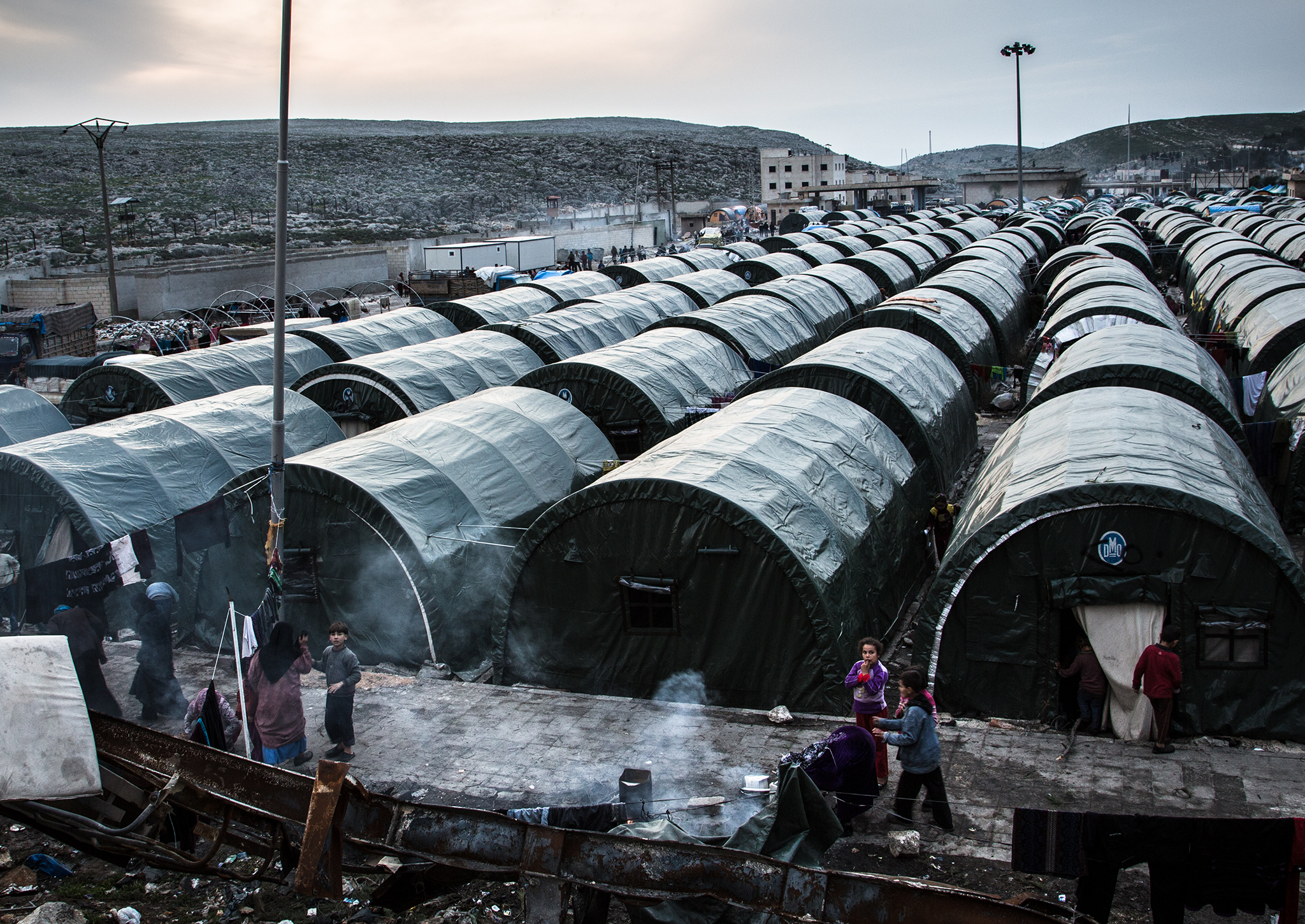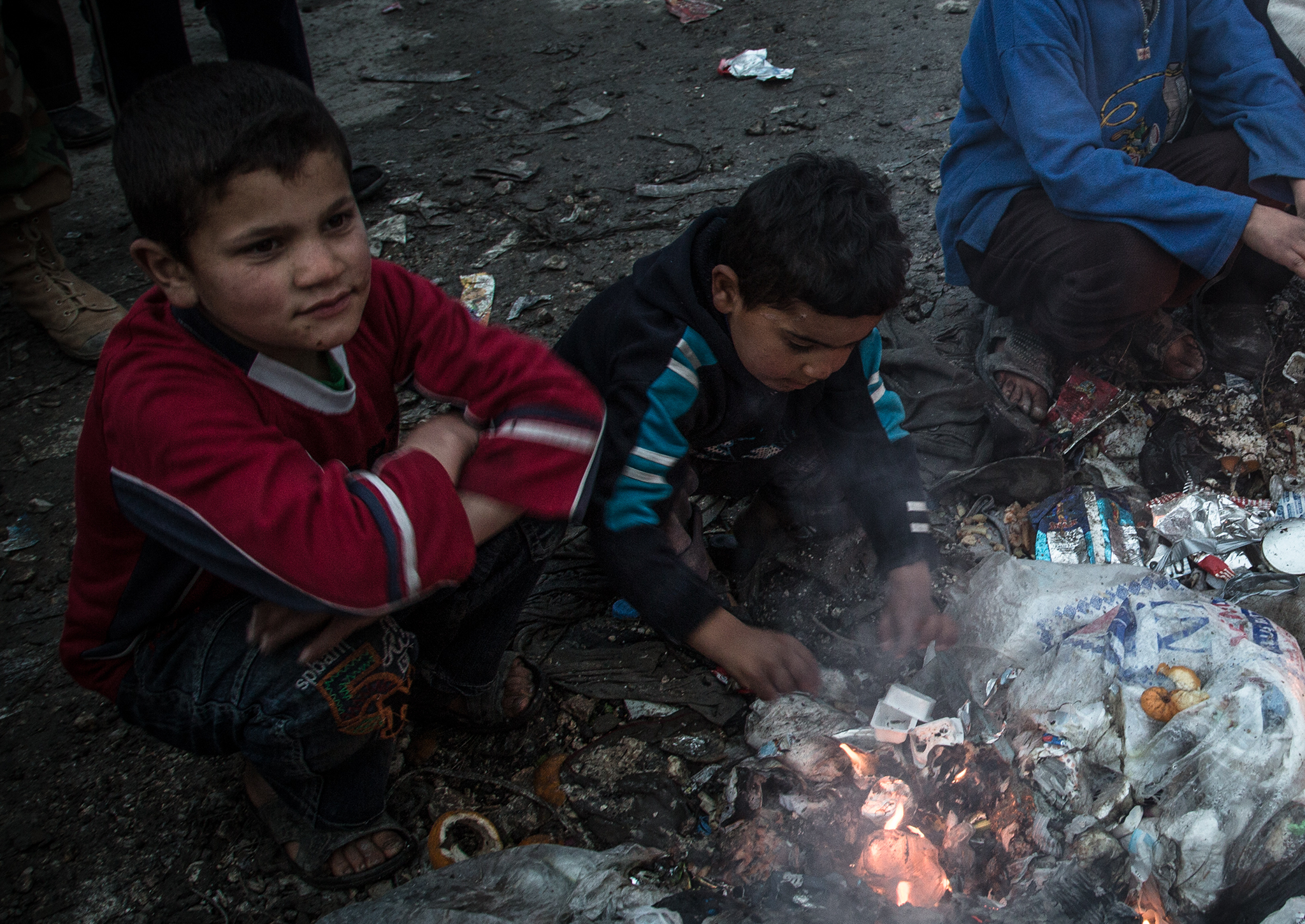'In just one day, a family's baby died and their grandmother suffered a stroke': Why we mustn't turn our backs on Iraq and Syria's refugees
I've watched as the region's victims of civil war sink further and further into the abyss, with almost no effort by the international community to save them

I’ve just returned from Iraq and Jordan, two countries struggling with massive influxes of refugees from intertwined conflicts in Syria and Iraq.
Frustratingly, Medecins Sans Frontiers – which helps people worldwide where the need is greatest – is unable to work properly inside Syria. The country is extremely insecure: our staff have been kidnapped and the government won’t let us work in areas it controls. But we do have a solid presence on the country’s borders.
As in other refugee crises, masses of people are fleeing across borders in need of shelter, food and medicine. What is different is that the countries neighbouring Syria are controlling the movement of refugees.
Most camps I visited were fenced off and guarded by police. The refugees are being assisted but they are unable to leave the camps, find jobs and build themselves a future.
At one unofficial camp in Iraqi Kurdistan I visited, people said they couldn’t imagine ever returning home. Some 400 families were living in an inhospitable area surrounded by hills, with minimal water and sanitation infrastructure.
At Kifri checkpoint, we came across an Iraqi family of 10 children and 10 adults, including two elderly grandparents. Ten days earlier, as their town was engulfed in fighting, they had left their home and all their belongings and hitchhiked towards Kifri. Their baby had died the previous day, on the road, and that morning the grandmother, after running out of medication, had suffered a stroke.
We found them sitting at the edge of the road, cold, miserable and desperate. We got them through the checkpoint and persuaded the town’s mayor to send a car to fetch the sick grandmother. When it arrived, the entire family started crying – the grandfather and all the adult men. This emotional scene brought home to me the impact that war has at an ordinary level, embodying the extent to which war crushes people, even if they don’t bear physical injuries.
In Jordan, MSF runs a surgical unit for war-wounded patients at a hospital close to the border at Ramtha. Many of our patients have been injured in the fighting in Deraa, but there are also civilian women and children who have been injured by barrel bombs and other explosive devices.
It was there that I met seven-year-old Basil, who has been a patient of ours for some months. Basil has complicated injuries that have required several operations. His mother had to return to Syria to care for her other children, leaving Basil alone in the hospital.
While he symbolises the horrors of war, he also symbolises human resilience. He’s a real rascal, and despite having had both legs amputated above the knees and having only one hand, he races through the hospital corridors in his wheelchair, taking very fast corners. And despite his young age, he offers comfort to other patients who have recently undergone amputations. He talks to them in such a warm, empathetic way that he has become an informal part of our health education programme.

Once Basil is fitted with prosthetic limbs, we hope he’ll be able to remain in Jordan. But I don’t know how he’ll be looked after. He’s a really special boy whose presence lights up the hospital wards, yet his future is so uncertain.
Basil also embodies the big questions of the Syrian conflict: Where are all these people going to go? What are they going to do? When will it be safe enough for them to return? These are questions that all Syrian refugees are asking themselves. Having your homeland destroyed by civil war is terrible, but having no control over your future is possibly worse.
Syria’s refugees are wracked with uncertainty about how they will be supported by neighbouring countries and the international community. Fifteen percent of Jordan’s population and 25 percent of Lebanon’s population is now comprised of Syrian refugees. Those numbers are overwhelming their ability to provide social services. In November, the Jordanian government revoked access to free healthcare for refugees, citing economic pressure. At the same time, the international community appears unwilling to support those neighbouring countries or share the burden by accommodating refugees.
While there are no easy solutions to the conflicts in Syria and Iraq, we should at least be as generous as we can to those who have fled. We should be providing them with healthcare, shelter, food, protection and some degree of certainty about their futures until they can return home.
Many refugees see no future in Syria or in the camps. In their desperation they are undertaking incredibly dangerous journeys across the Mediterranean, where many end up perishing. Several people I met recounted stories of friends or family who had died trying to reach Europe.
As the people of Syria and Iraq sink further into the abyss, the world stands by and fails to support them. It’s very difficult to accept that, both as a humanitarian organisation and as a human being.
It’s clear that this war will not end soon. A sustainable future must be provided for innocent children like Basil and those families who cannot go home. We at MSF refuse to turn our backs on the people of Syria and Iraq, despite the difficulties in reaching those who need help the most.
Arjan Hehenkamp is general director of MSF Holland
Join our commenting forum
Join thought-provoking conversations, follow other Independent readers and see their replies
Comments
Bookmark popover
Removed from bookmarks